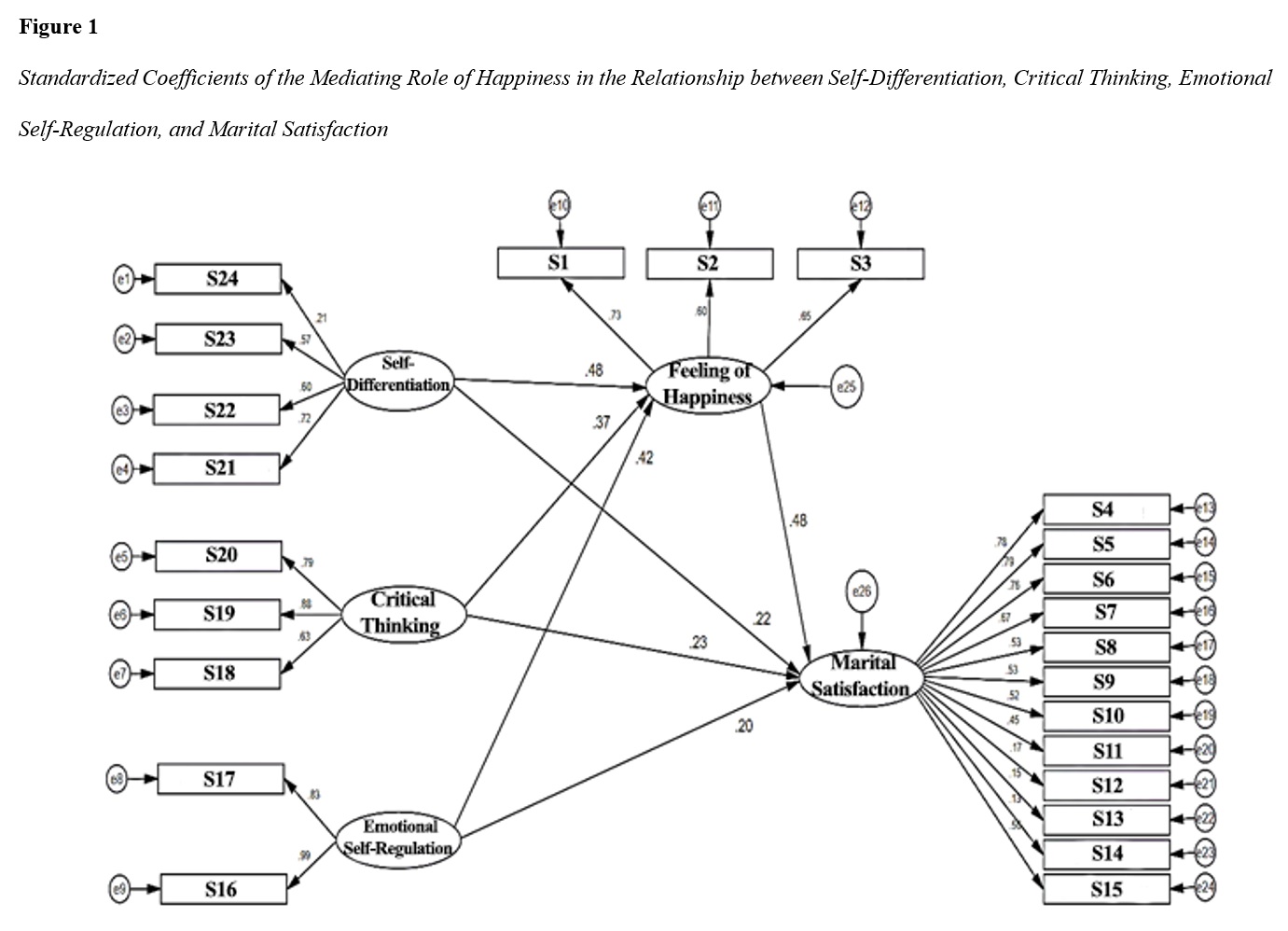Model Fit Determination of Marital Satisfaction Based on Self-Differentiation, Critical Thinking, and Emotional Self-Regulation Mediated by the Feeling of Happiness in Married Women
Keywords:
Marital satisfaction, self-differentiation, critical thinking, emotional self-regulation, happiness, structural equation modeling, married womenAbstract
Objective: The primary objective of this study was to develop and validate a structural model of marital satisfaction among married women, based on self-differentiation, critical thinking, and emotional self-regulation, with happiness as a mediating variable.
Methods and Materials: This study utilized a quantitative, descriptive-correlational design with a structural equation modeling (SEM) approach. The sample comprised married women who visited the counseling centers at the University of Tehran between January 2023 and August 2023. A total of 330 participants were selected using convenience sampling. Data were collected using validated questionnaires, including the Self-Differentiation Scale, Critical Thinking Questionnaire, Emotional Self-Regulation Scale, Oxford Happiness Questionnaire, and ENRICH Marital Satisfaction Scale. The data were analyzed using SEM to assess the model's fit and test the hypothesized relationships between variables.
Findings: The results indicated that the proposed structural model fit the data well, with satisfactory model fit indices (χ²/df = 3.618, RMSEA = .061, CFI = .923). Self-differentiation (β = .217, p = .033), critical thinking (β = .230, p = .01), and emotional self-regulation (β = .201, p = .01) had significant direct effects on marital satisfaction. Additionally, happiness significantly mediated the relationships between self-differentiation (β = .229, p = .01), critical thinking (β = .178, p = .01), and emotional self-regulation (β = .200, p = .01) with marital satisfaction.
Conclusion: This study underscores the importance of self-differentiation, critical thinking, and emotional self-regulation as key factors influencing marital satisfaction among married women. The mediating role of happiness highlights its significance in enhancing marital satisfaction by fostering positive emotions and reducing stress.
Downloads

Downloads
Additional Files
Published
Issue
Section
License
Copyright (c) 2024 Soraya Kordbacheh (Author); Farideh Dokaneifard (Corresponding Author); Mojgan Nicknam (Author)

This work is licensed under a Creative Commons Attribution-NonCommercial 4.0 International License.




















